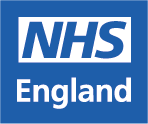Proposed action to cut sales of sugary drinks
Overview
NHS England’s Chief Executive Simon Stevens is calling on patients and the public to have their say in a ten week consultation on plans to cut the sales of sugary drinks sold in hospitals.
Our formal consultation gives details of a proposed new fee to be paid by vendors and seeks views on an outright ban, as well as alternative measures to reduce sales of sugary-drinks.
Simon Stevens committed in the Five Year Forward View, to improve the health of NHS England’s workforce. A recent survey found obesity to be the most significant self-reported health problem amongst NHS staff, with nearly 700,000 NHS staff estimated to be overweight or obese. Rising rates of obesity amongst NHS staff is not only bad for personal health, but also affects sickness absence and the NHS’s ability to give patients credible and effective advice about their health.
Hospitals are an integral part of the community and are visited by over with over 1 million patients every 36 hours, 22 million A&E attendances and 85 million outpatient appointments each year
The food sold there can send a powerful message to the public about healthy food and drink consumption.
Please ensure you read the consultation document before going on to complete the questionnaire.
The audio files of the consultation document can be found below:
Contents - part 1 | Contents - part 2 | Contents - part 3 | Contents - part 4
1. The case for action
2. Our wider work - part 1 | Our wider work - part 2
3. What is NHS England consulting on
4. The policy options - part 1 | The policy options - part 2 | The policy options - part 3
5. The Definitions of sugar-sweetened beverages - part 1 | The Definitions of sugar-sweetened beverages - part 2 | The Definitions of sugar-sweetened beverages - part 3 | The Definitions of sugar-sweetened beverages - part 4 | The Definitions of sugar-sweetened beverages - part 5 | The Definitions of sugar-sweetened beverages - part 6
6. Implementation
7. Consultation approach
8. Summary of questions
9. Annex 1: Technical guidance - part 1 | Annex 1: Technical guidance - part 2
10. Notes
Audiences
- Academic/professional institutions
- Advocacy or support organisations
- All interested stakeholders
- All NHS England Staff
- All P&I staff
- All TCO staff
- Allied health professionals
- Area Team directors
- Art therapists
- Care Quality Commission
- Care-givers
- Carers
- Charities
- Childcare providers
- Chiropodists/podiatrists
- Clinical Nurse Specialist
- Clinical psychologists
- Clinical Reference Groups (CRGs)
- Clinicians
- Commissioners
- Community groups
- Community healthcare trusts
- Deaneries
- Dental surgeons
- Dentists
- Department of Health
- DH third sector strategic partners
- Diagnostic radiographers
- Dietitians
- Directors of public health
- Doctors
- Drama therapists
- Employee representatives
- Employer representatives
- Event attendees
- Foundation trusts
- General Practice Nurses
- GP Practices
- GP Practices
- GPs
- Health and Social Care Information Centre
- Health and Wellbeing boards
- Health care assistants
- Health Education England
- Health Protection Agency
- Health visitors
- Healthcare scientists
- Healthwatch (national and local)
- Higher education institutions
- Informatics professionals
- Information professionals
- Information providers
- Local authorities
- Local Government Association
- Managers
- Mental health trusts
- Midwives
- Monitor
- Music therapists
- National directors
- National Institute for Health and Care Excellence
- Neonatal and maternity staff
- New Care Models
- NHS England Partnership Organisations
- NHS Trust Development Authority
- Nurses
- Occupation therapists
- Oncologists
- Ophthalmic practitioners
- Organisational Change and Programme Delivery Team
- Orthopists
- Orthotists
- Paediatric neuropsychologists
- Paramedics
- Patient groups
- Patients
- Patients and the public
- Pharmaceutical Industry
- Pharmacists
- Physiotherapists
- Policy leads
- Practice managers
- Primary care
- Prosthesists
- Radiologists
- Receptionists
- Referrers to PET CT
- Regional directors
- Regulatory bodies
- Responsible officers
- Retailers
- Royal Colleges
- Service providers
- Service users
- Social care providers
- Speech and language therapists
- Staff and organisations across the health system
- Strategic clinical networks (SCNs)
- Suppliers
- Therapeutic radiographers
- Trade unions
- Tribunal service
- Voluntary groups
Interests
- Any Interest

Share
Share on Twitter Share on Facebook